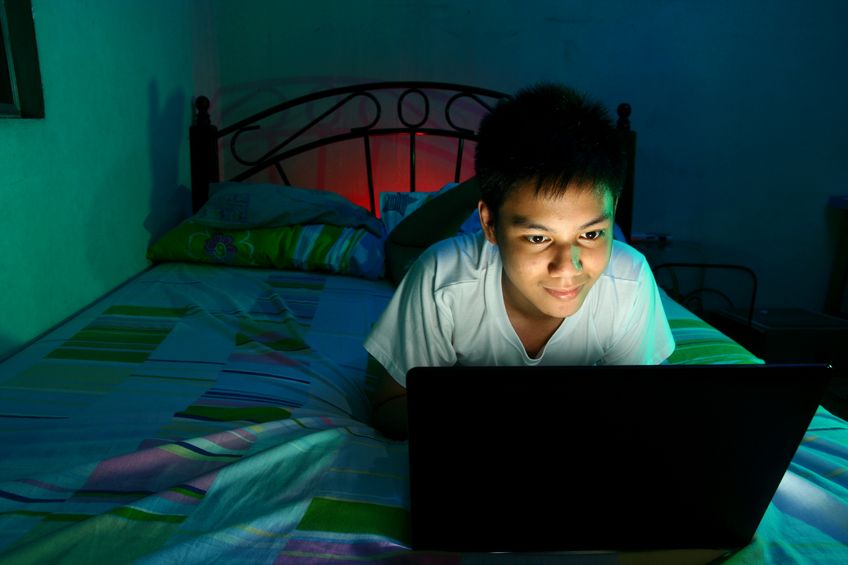Were your teenagers excited to head back to school, or did they beg you for more sleep this year? The importance of sleep for children and teenagers cannot be stressed enough, as their growing bodies and learning minds need the support of quality snooze to help maximize their health and education. So what could be keeping your teenagers from tucking in on time?
According to new research from Brown University, young teenagers in early to middle puberty are especially more vulnerable to the effects of artificial light at night, compared to older teenagers.
Bringing an electronic device to bed could suppress the release of melatonin, the hormone that helps us fall asleep and stay asleep, resulting in later bedtimes and poor sleep. With 96% of teenagers found to use at least one form of technology in the hour leading up to their bedtime, parents may want to consider the impact light exposure has on their children.
Published online in the Journal of Clinical Endocrinology & Metabolism, the study included data on 38 children ages 9-15, who were in the earlier stages of puberty, which was compared to 29 teenagers ages 11-16, who were farther into the stages of puberty.
The research team found that the brighter the light during an hour of exposure at night for the study participants, the more melatonin release was hindered for both boys and girls.
“Students who have tablets or TVs or computers — even an ‘old-school’ flashlight under the covers to read — are pushing their circadian clocks to a later timing,” shared senior study author Mary Carskadon. “This makes it harder to go to sleep and wake up at times early the next morning for school.”
Help your family develop health sleep habits for a brighter future together. While we all have our unique preference for how much sleep we need, following the recommended sleep times of the National Sleep Foundation for our age group helps us make each day success and reduces serious health risks that come with sleeping too little and too much.


No comments yet.